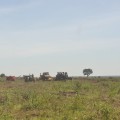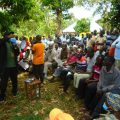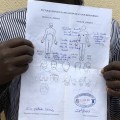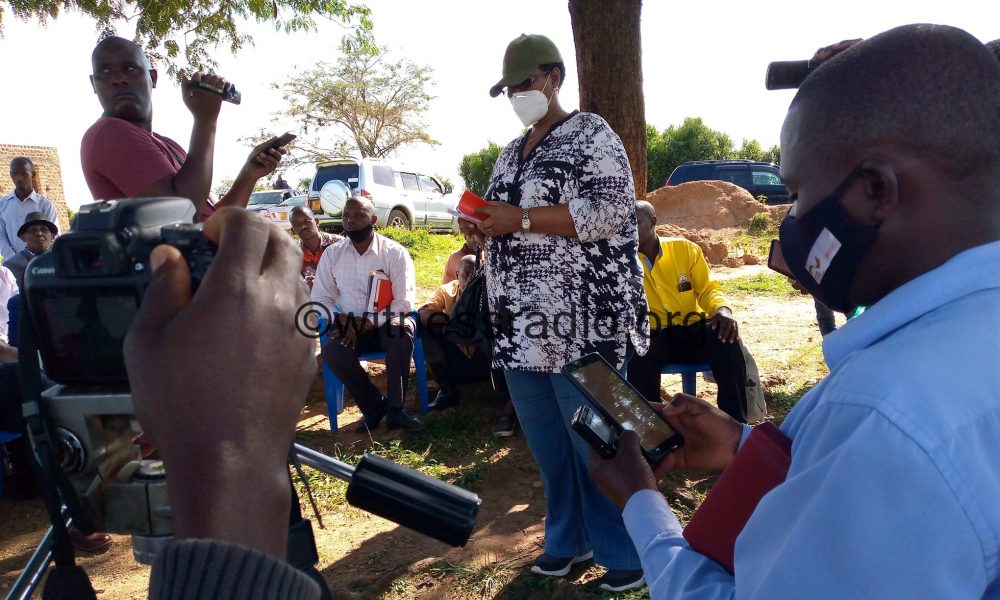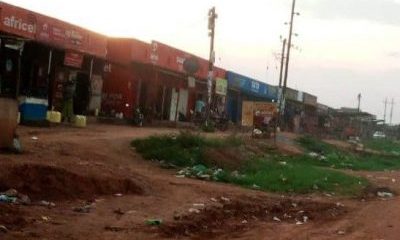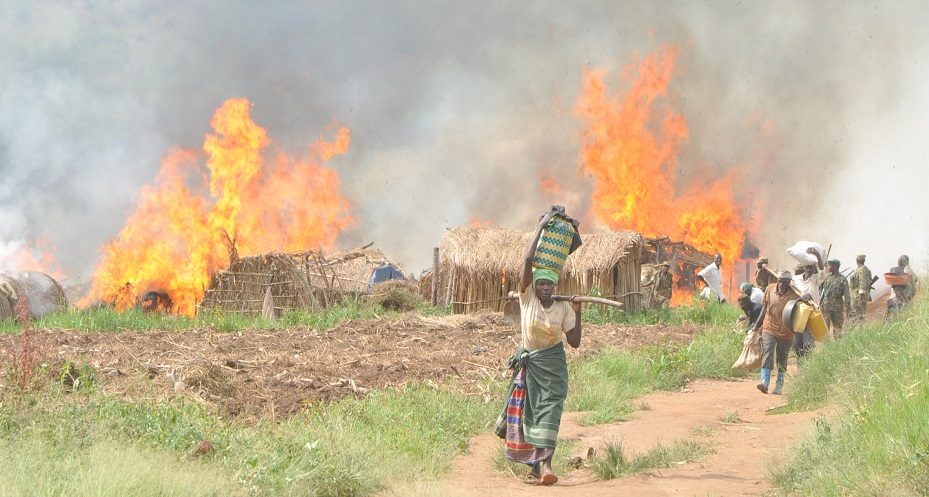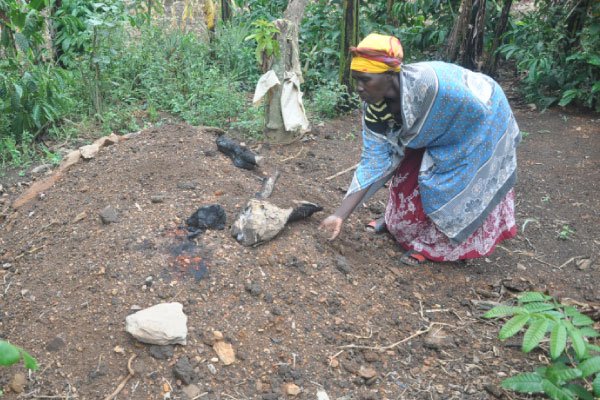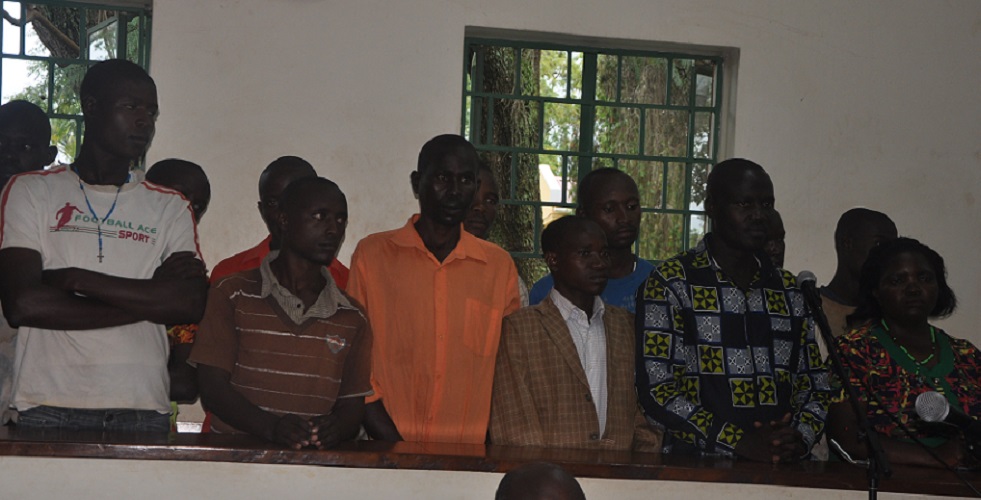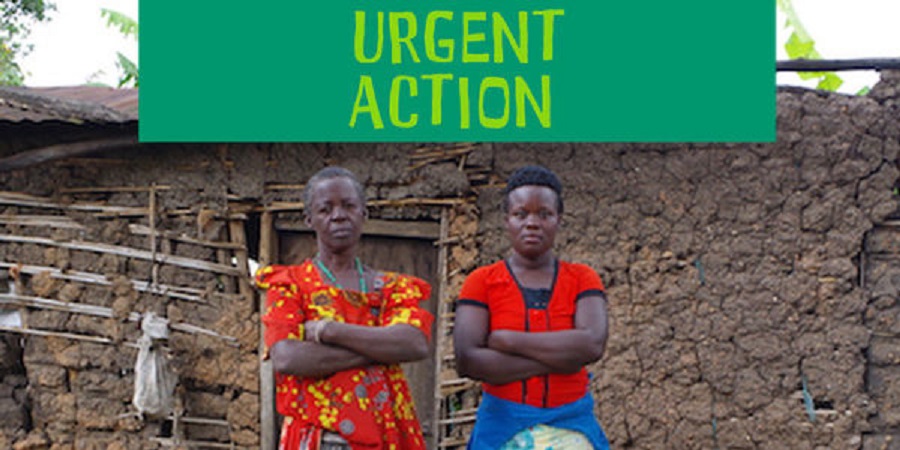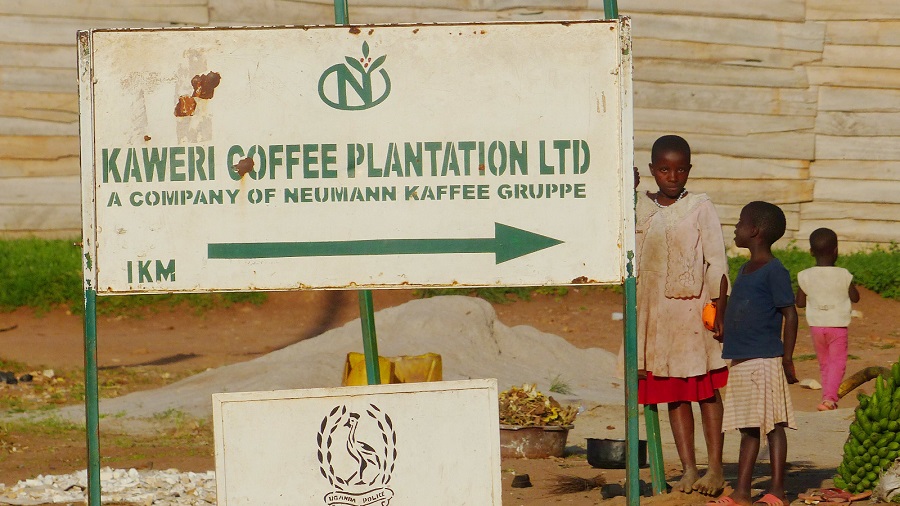Mrs. Grace Majoro Kabayo, (standing in the middle) in a meeting that was blocked by residents.
By witnessradio.org Team
As the demand for land for land based investments soars, the middleman’s role in the unlawful land transactions between investors and government agencies remains crucial in the broader scheme. The middleman business has become a lucrative venture in Uganda; more people are being recruited into it. For a public servant with access to vital information from land registries, the business is a goldmine. Middlemen are grabbing land for investors.
From the stage of land grabbing to investing, middlemen resort to the use of violence orchestrated by both police and other security agencies; at this point, high levels of impunity are exhibited, land rights defenders and land owners who demand for justice are then arrested for non-existent offences.
Witness Radio – Uganda records show that a reasonable percentage of grabbed land from poor communities in the country have for instance remained undeveloped.
In Mubende District, Central Uganda, residents accuse Mrs. Grace Majoro Kabayo a Senior Presidential Advisor for using her position to fraudulently acquire their land using police and officials from the Ministry of Lands. Ironically, Kabayo advises the President of Uganda on Pan-Africanism, and doubles as the Executive Secretary of the Pan African Women Organization’s PAWO Eastern Africa chapter, where she oversees the organization’s day-to-day activities.
Mubende District according to Witness Radio – Uganda figures, is ranked as one of the districts with the highest incidents of forced and illegal evictions and has registered with more than five cases since the year 2021 started.
Mubende District is bordered by Kyankwanzi District to the north, Kiboga District, Kassanda to the northeast and Mityana District to the east. Gomba district and Sembabule District lie to the south, whereas Kyegegwa District to the southwest and Kibaale District to the northwest.
Mrs. Kabayo with her political influence is allegedly using survey and boundary opening tactics to grab 625 Ha of land for thousands of inhabitants, which she has never lived on or owned.
According to locals, this is not the first time for the presidential advisor to engage into land grabbing, in 2017 while accompanied by the police in Mubende, she forcefully surveyed and grabbed 20 square miles and now wants to expand.
It is anticipated if Kabayo succeeds with the land grab, more than 5000 people on five villages comprising Kattambogo A, Kattambogo B, Rwobushumi, Rwonkubi and Nyaruteete, in Kigando-Buwekula Sub County in Mubende district, will lose their livelihood.
A letter dated 29th March, 2021, signed by the Permanent Secretary, Ministry of Lands, Housing and Urban Development, Mrs. Docus Okalanyi which Witness Radio – Uganda obtained a copy, okayed the move by the president’s advisor to open boundaries on land located at block 379 and all adjacent blocks which include: 378, 380 and 381 a process which the residents opposed.
Without any prior notice to the residents, Kabayo accompanied by the officers from Ministry of Lands, State House officials, and security personnel for the Uganda Peoples’ Defence Forces (UPDF) and Uganda Police had planned to conduct a rally at Nyarutete, one of the 5 villages, but was blocked by the angry residents.
Mr. Ruzhoga Laurent, 53, a resident of the village from birth, said, they have been facing threats of forced evictions for the last three years by Kaboyo. He asserted that his family would not leave the land for an imposter. Ruzhoga added that he would only leave as a corpse.
Jordan Byakatonda, an area land committee, chairperson said, the land targeted is public land with people on living on it.
He said, any person who wishes to get a leasehold on public land must first show his or her interest in the land before picking application Form 8 from the District Land Office or Area Land Committee, fill it, and attach 4 passport photos. He stated that the area land committee’s mandate involves receiving applications and issuing notices for public hearings concerning land ownership using Form 10, Byakatonda observed that Kaboyo had not engaged the committee during the process.
Information Sources from Mubende district preferring anonymity for security reasons accused some government officials of manipulating the stated legal procedures and guidelines. “Everything is coming from the center (ministry) instead of starting from an area where the land is located”, said the source.
“The first time we saw her, she was grabbing land and now she has come back to take ours. When she was asked by the land probe committee headed by Justice Catherine Bamugemereire why she had surveyed the land forcibly, she replied that she never surveyed any land and did not know those people,” another villager who preferred anonymity said.
According to guidelines of Ministry of Lands, Housing and Urban Development Planning Act, 2010 and Land Act, Cap 227, state that;
Any applicant for a leasehold on the public land must have in his/her possession fully completed form 4,10,19 23, a set of 3 authentic deed plans, 3 passport photographs, receipts of payment and a forwarding letter requesting for a freehold title signed by the District Land officer of the respective district where the land is located.
Step 2
The applicant presents the full set of original documents in duplicate and a photocopy of the same to the department of land administration for checking.
The photocopy is stamped received and returned to the applicant. The applicant checks with the department of land administration after 10 working days to confirm their approval or rejection.
Step 3
Once approved the documents are forwarded to the department of the land registration for issuance of a freehold land title. The applicant checks after 20 working days.
Step 4
The applicant presents the photocopy given to him/her by the department of land administration stamped, received and identification documents on collecting the freehold Title. The applicant signs for the title and the photocopy is stamped returned on completion.
Documents required include; Deed plans, set of passport photographs, general receipts of payment and a requesting letter. Fees paid at the ministry. Registration fees-10,000#, Assurance of the title- 20,000#, issuance of the title-20,000#.
The preliminary steps that involve the Area Land Committee were not complied with by Mrs. Grace Majoro Kabayo as she acquired land that accommodates thousands of people.
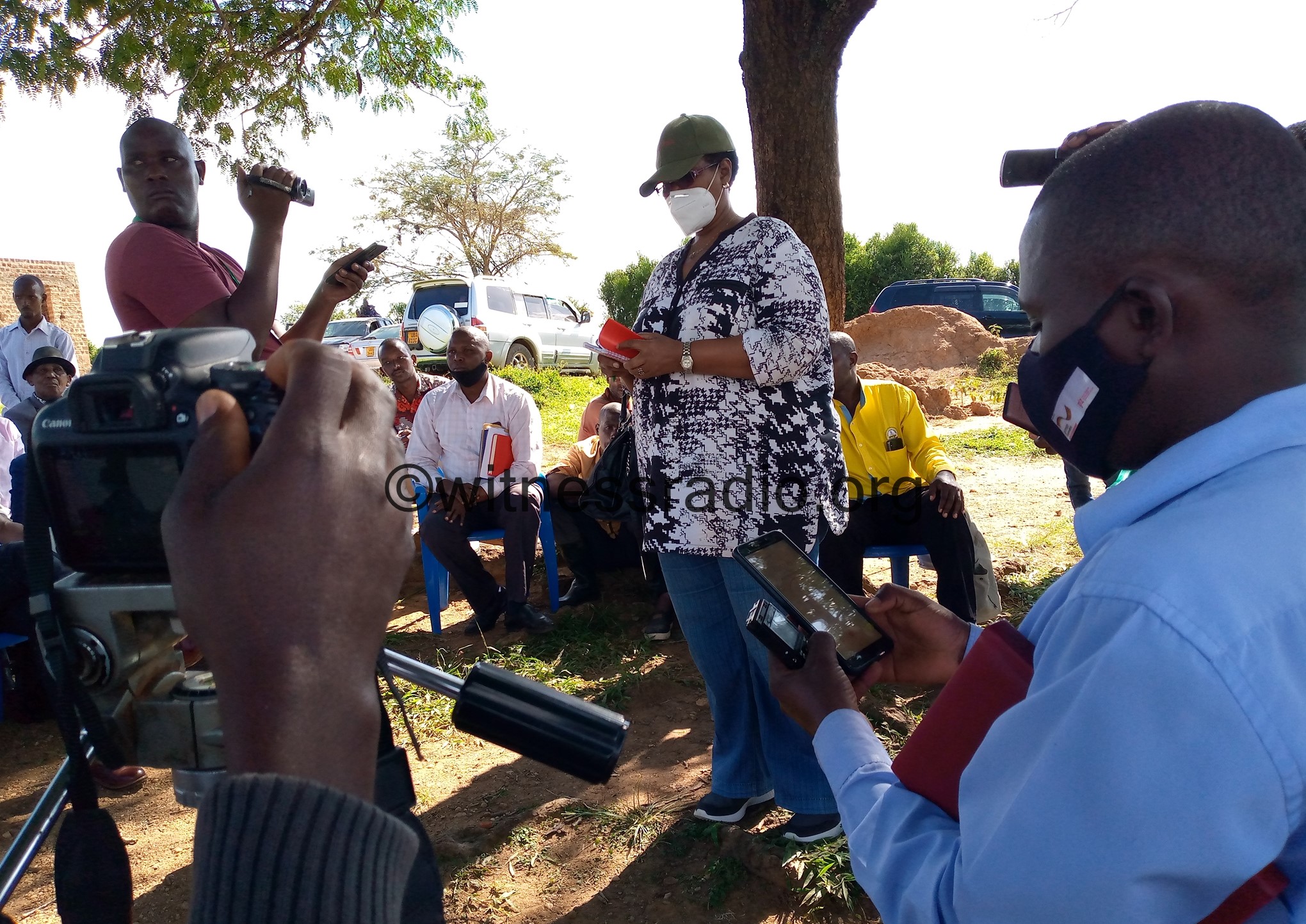

 MEDIA FOR CHANGE NETWORK2 weeks ago
MEDIA FOR CHANGE NETWORK2 weeks ago
 FARM NEWS2 weeks ago
FARM NEWS2 weeks ago
 MEDIA FOR CHANGE NETWORK1 week ago
MEDIA FOR CHANGE NETWORK1 week ago
 MEDIA FOR CHANGE NETWORK1 week ago
MEDIA FOR CHANGE NETWORK1 week ago
 MEDIA FOR CHANGE NETWORK4 days ago
MEDIA FOR CHANGE NETWORK4 days ago
 MEDIA FOR CHANGE NETWORK6 days ago
MEDIA FOR CHANGE NETWORK6 days ago
 MEDIA FOR CHANGE NETWORK3 days ago
MEDIA FOR CHANGE NETWORK3 days ago
 MEDIA FOR CHANGE NETWORK2 days ago
MEDIA FOR CHANGE NETWORK2 days ago

